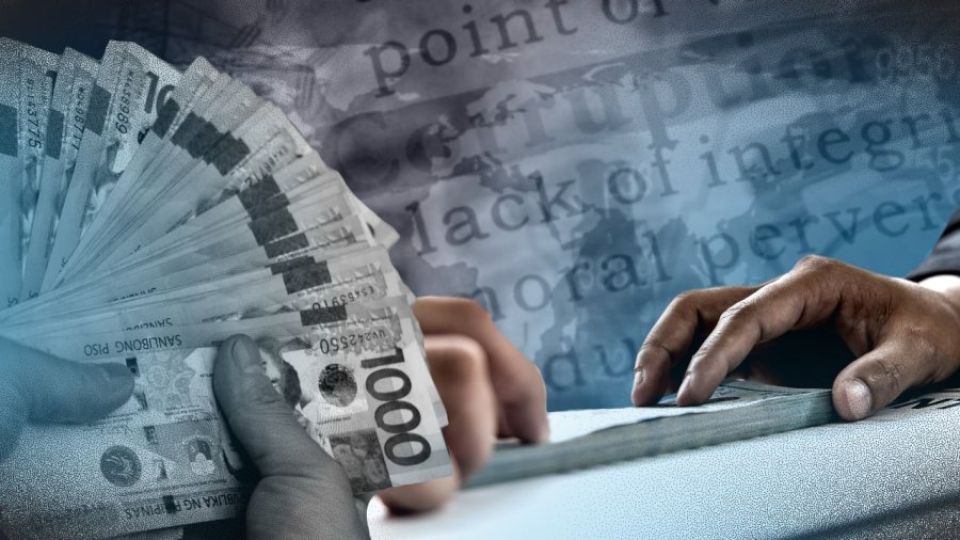February 2, 2023
MANILA, Philippines — The Philippines saw a slight rise in ranking in an international corruption index, inching up a notch to 116th among 180 countries but retained low scores in perception of corruption in government.
In the 2022 Corruption Perception Index (CPI) of anti-corruption watchdog Transparency International, the Philippines landed on the 116th spot—higher than its previous rank of 117th in 2021.
Still, the Philippines maintained a low score of 33 out of 100. A country’s score, according to Transparency International, is the perceived level of public sector corruption on a scale of 0-100, where 0 means highly corrupt and 100 means very clean.
The average CPI score is 43 out of 100, the report noted.
In terms of indicating the level of corruption in the country, the score is deemed more important than the rank since a country’s position on the list can change if the number of countries included in the index changes.
Similar to last year’s corruption index, the Philippines was again among the countries tagged as “significant decliners” after its CPI score dropped from 38 out of 100 in 2014.
According to Transparency International, democracy has been declining in recent years among some of the most populous countries in the world. These include India, Bangladesh, and the Philippines.
“Regimes are consolidating power by curtailing space for dissent with more draconian laws that restrict free speech or criticisms of the government – and face no accountability for jailing those who allegedly defy them,” said the group.

GRAPHIC Ed Lustan
Last year, member states of the United Nations Human Rights Council (UNHRC) called on the Philippine government to ensure the safety of media workers and human rights defenders in exercising their freedom of opinion, expression, and association.
Several UN member states called on the Philippine government over recommendations to take necessary steps to address impunity against journalists, human rights defenders, and dissidents.
The Philippine government was also urged to put an end to the red-tagging of journalists, human rights defenders, and dissidents.
To do this, the United States made several recommendations, including the review and revision of specific laws in the Philippines, like Penal Code articles 353 and 355, the Cybercrime Prevention Act of 2012, and the Anti-Terrorism Act of 2020 Section 9.
According to data from human rights group Karapatan, at least 17 individuals from the peasant sector were killed from July 1 to November 30 last year.
During President Ferdinand “Bongbong” Marcos Jr.’s first few months in office, two journalists were killed—radio journalists Rey Blanco and Percival Mabasa.
In a report released last year, international rights organization Human Rights Watch (HRW) stressed that the National Task Force on Ending Local Communist Armed Conflict is the main government agency engaged in “red-tagging” activists, lawyers, journalists, media groups, and even civilian food volunteers in the country

GRAPHIC Ed Lustan
One of the tools used by the government against activists, HRW explained, is the Anti-Terrorism Act signed by then-President Rodrigo Duterte in 2020.
“Various groups denounced the law because, as the UN high commissioner for human rights noted, it ‘dilutes human rights safeguards’ and creates a ‘chilling effect on human rights and humanitarian work’,” HRW said.
“Since its passage, the law has been challenged but has also been used by the government against activists, Indigenous peoples, unionists, as well as alleged communist insurgents.”
Corruption scores in Southeast Asia
Transparency International also noted that the 2022 CPI report showed that “leaders have ignored anti-corruption efforts, with levels of corruption stagnating across the [Asia Pacific] region for a fourth straight year.”
Out of 24 Southeast Asian countries included in the latest CPI report, the countries that had the highest score and the least corrupt based on their rankings were:
.Singapore: 83 CPI score, rank No. 5 out of 180 countries
.Hong Kong: 76 CPI score, rank No. 12 out of 180 countries
.Japan: 73 CPI score, rank No. 18 out of 180 countries
.Taiwan and Bhutan: 68 CPI score, rank No. 25 out of 180 countries
.South Korea: 63 CPI score, rank No. 31 out of 180 countries
On the other end of the list were Southeast Asian countries with the bottom scores, which included:
.Pakistan: 27 CPI score, rank No. 140 out of 180 countries
.Bangladesh: 25 CPI score, rank No. 147 out of 180 countries
.Cambodia: 24 CPI score, rank No. 150 out of 180 countries
.Myanmar: 23 CPI score, rank No. 157 out of 180 countries
.Vietnam: 42 CPI score, rank No. 177 out of 180 countries


